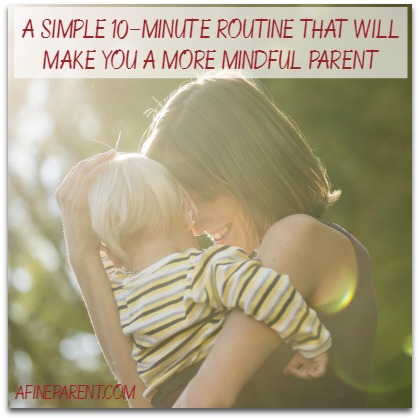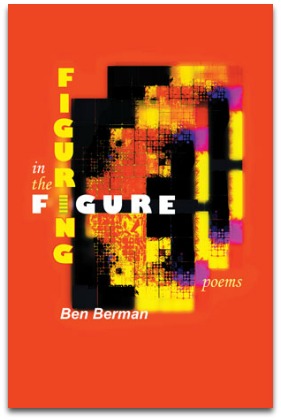 We recently had another family over for dinner when my three-year-old decided to pass around her latest “art project” – a piece of construction paper that was supposed to resemble a fruit roll-up.
We recently had another family over for dinner when my three-year-old decided to pass around her latest “art project” – a piece of construction paper that was supposed to resemble a fruit roll-up.
One by one, our guests put down their forks and politely examined her art, praised it, even pretended to eat it.
Why is it so wet? I asked when it was my turn.
I dipped it in the toilet, she whispered.
I probably should have leapt right into action, hauled our industrial-sized tank of hand sanitizer up from the basement.
But I just sat there, toilet water dripping from my hands, the writer-in-me already imagining what a great story this was going to make.
Writing Makes Us More Mindful
When Sumitha invited me to write a guest post for this site, I was immediately filled with existential angst. I’ve always found the articles on this blog to be enormously helpful, but poets aren’t exactly known for offering highly practical or actionable advice.
However, I do believe that developing a writing routine (be it in a private journal or public blog) can turn us into more reflective, mindful and attentive parents.
Often, I don’t even notice how writing affects my state of mind until I’ve fallen out of my routine. Then I’m irritable and easily frustrated. My five-year-old lies crying on the floor after dinner, and I think: why can’t I just do the dishes in peace?
And then I realize that, no, she probably didn’t pirouette into the wall on purpose. And, yes, it has been a few days since I’ve taken the time to write down my thoughts in a journal or shape all that raw material into a poem.
Youth, wrote George Bernard Shaw, is wasted on the young. Before I had kids I wrote whenever I felt like it, loafed about until my muse came a-callin’.
Now that I don’t have time to write anymore, I find it all the more necessary to wake up a bit earlier than I should and spend the first part of my morning recording and contemplating all the mundane details of my days.
The Writing Process Helps Us Process
 In his new book, Here I Am, Jonathan Safran Foer writes, Children ask, “Are we there yet?” Adults: “How did we get here so quickly?”
In his new book, Here I Am, Jonathan Safran Foer writes, Children ask, “Are we there yet?” Adults: “How did we get here so quickly?”
A writing routine offers us the opportunity to slow down and attend to our thoughts and feelings, to record and respond to all the poignant and bewildering things that our kids say and do throughout the day.
But writing isn’t just a way of capturing small moments; it’s also a way of freeing them.
It offers us the private freedom to acknowledge thoughts and emotions that we might not like to admit to having. It becomes a sacred space where we can return to ourselves without judgment or consequence. It affords us the opportunity to not just get complicated interactions off our chests but, more importantly, to make sense of them.
After all, we do not write to be understood, writes C.S. Lewis. We write in order to understand.
Writing Shapes Our Mindset
But beyond being a space to process our emotions, writing also offers us tools and devices to transform our experiences into art.
We begin by recording some minor frustration about the never-ending piles of laundry and before we know it, we’re meditating on the challenges of sorting chaos into order.
Writing, after all, is a metaphysical practice.
My five-year-old’s refusal to eat a sandwich with even a speck of crust still on it is not just another hassle preventing me from getting to work on time; it’s an opportunity to meditate on how having children strips away our hardened outer layers and returns us to the soft warmth at our core.
My three-year-old’s insistent chanting from her car seat – Are we here yet? Are we here yet? Are we here yet? – is not just payback for years of fighting with my brothers in the back seat, but a nod to the challenges of staying present and a reminder that small slips of language can lead to great existential questions.
If we can think of writing as a play space for our daily frustrations and disappointments then we stop resenting them and begin to see them, instead, as potential for creative material.
6 Simple Tips to Start a Writing Routine (Even if You Don’t Think of Yourself as a Writer)
 So let’s consider what it would actually take to begin a consistent writing routine.
So let’s consider what it would actually take to begin a consistent writing routine.
Identify Material – Think about a single interaction that you’ve had with your kids in the past week that delighted or frustrated you; perhaps it was something said, or a behavior that drives you crazy, or an emotional response that surprised you. Try to find something that you haven’t already discussed or thought about – make note of it as something you’d like to explore in your writing. The first step to writing is paying attention.
Imagine an audience – We all have people in our lives that we wish lived a little bit closer or were still around. Think of the perfect listener for one of your stories, someone you wish you could share your experiences of parenting with. Often times, just imagining a potential listener helps us begin to shape our stories.
Practice Bemusement – Developing a writing voice (or persona) allows us to reframe our experiences. And the more we practice seeing the world through this perspective, the more we actually change the narrator in our head. So, the next time you catch your child drinking maple syrup straight out of the bottle, try to step back and let your persona – the one that is oh-so-witty and sees their kids as tiny, adorable metaphors – take over and narrate that story as it unfolds.
Make it a routine – One of the nice things about parenting is that it turns us into mindless, efficient machines. Once we do something three days in a row, poof, it simply becomes a part of our routine. So, to start, try to take ten minutes at the end of each day (or start to a new one) to simply document one or two events from your day.
Write Without Thinking – A writer is not so much someone who has something to say, writes William Stafford, as he is someone who has found a process that will bring about new things he would not have thought of if he had not started to say them. Once journaling becomes a routine, try to free-write without worrying about where it is going. Trust that writing is a process of discovery – that we write in order to learn how we feel.
Buy a Journal (Or Start a Blog) – My three-year-old recently offered me driving directions to her school. First you go outside, she said. Then you go on the road. And then you are there.
Starting a writing routine is no more complicated than that. First, you find a time to write. Then you start writing. Then you are a writer.
Poetry makes nothing happen, W.H. Auden famously wrote.
Given how hectic parenting is, how impossible it is to balance a career and family let alone find two minutes to go the bathroom without someone tugging on your leg, doesn’t the idea of nothing happening sound kinda delightful?
The 2-Minute Action Plan for Fine Parents
For our quick contemplation questions today, think of a simple regular event from your life during the past two days.
- How would your favorite writer bring that event to life?
- If this were portrayed as a scene in a movie, how might it feel less mundane?
- What are a few stories from the past week that are worth sharing with others?
- How might writing help you preserve these?
- How can taking the time to write about these moments help you be more mindful of similar future moments?
The Ongoing Action Plan for Fine Parents
Over the next week give the writing routine a shot.
If you’re not sure it’s a habit you might stick to, then don’t bother to buy a journal or start a blog yet… just pick any notebook or a sheet of paper (or fire up a document on your laptop) and start writing away. Stick with it for at least three days. Notice how the writing routine makes you more mindful throughout the day. And then, when you are convinced, you can go buy that journal or register your blog.

Ben Berman’s second collection of poems, Figuring in the Figure, meditates on marriage, the domestic life, and the joys and trials of bringing a daughter into the world. Sometimes with a Frostian spirit, sometimes with a touch of Zen, the known is questioned and wisdom gleaned from daily experience. This is a book that challenges us to reimagine the familiar, both physical and spiritual, while reminding us not to “wander through this world without wonder.”


It’s really interesting and useful article about parenting, please, keep doing this type of content!
I absolutely agree, when I write about my experiences with my daughter I get a sense of direction of where I am going and where I need to go. Thank you for reminding me of what I have been missing.
Writing gives me the moments to reflect, contemplate. Think objectively. See from a new perspective. Clear my frazzled mind.
I totally agree with you. It does help me to become a more mindful and attentive parent.
This is a great article. Thank you.
I journal but too often as an outpouring of emotion that ends up boring even me ; ) The ideas and tips in this article have given me a sense of direction and focus to my writing and immediately, as you say, a sense of mindfulness with the kids. I’ve been in much need of this. Thank you so much for generously sharing.
This was exactly what I needed. Thank you.
“Writing, after all, is a metaphysical practice.” WOW. Major, major Aha! for me! Thank you so much for writing this piece Ben, and thank you Sumitha for asking him to contribute!!!
Love and light to both of you,
-Jessica Gammell-Bennett
So glad that clicked for you, Jessica. I love how this article has so many little nuggets that connect with people at different levels 🙂 Good luck with your writing!
“First you go outside. Then you go on the road. And then you are there.” is my new mantra! Great article! 🙂
Mine too 🙂 Isn’t that just so precious!!!